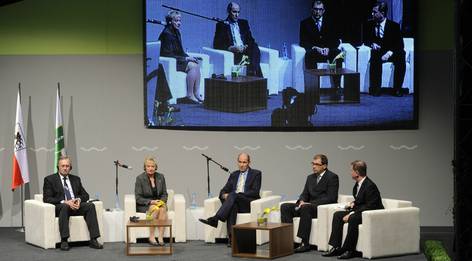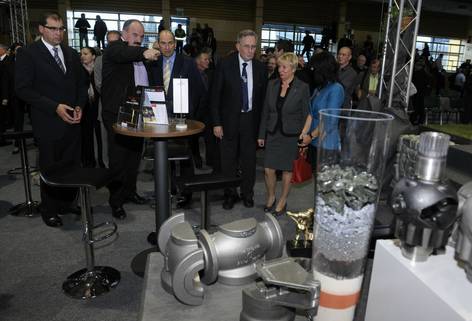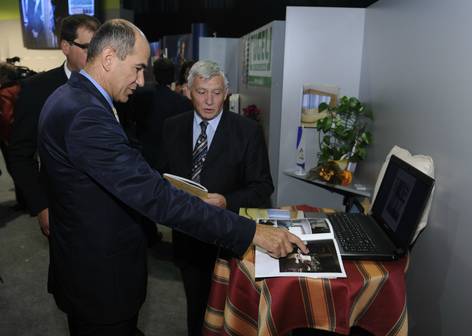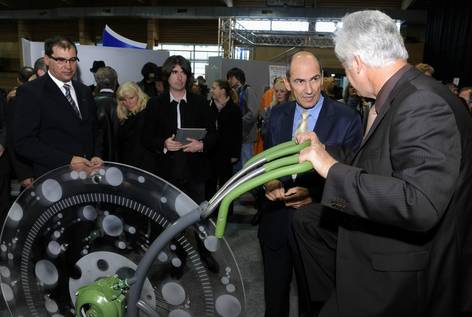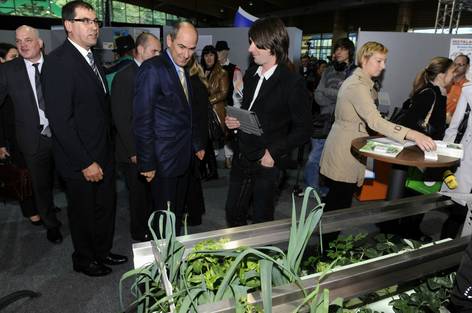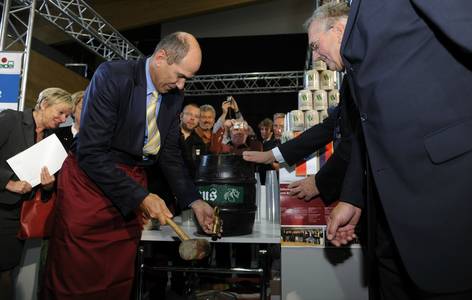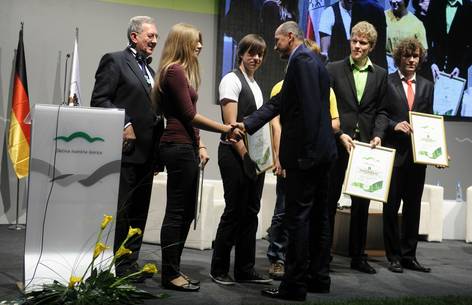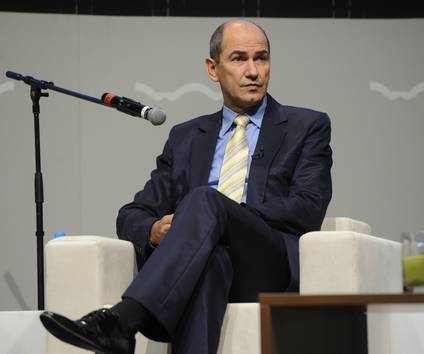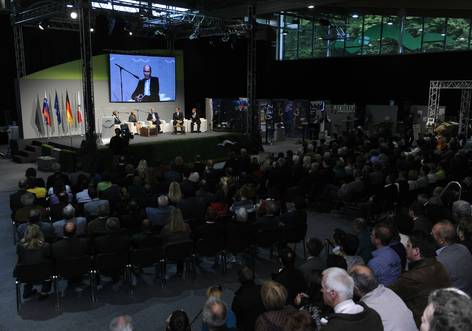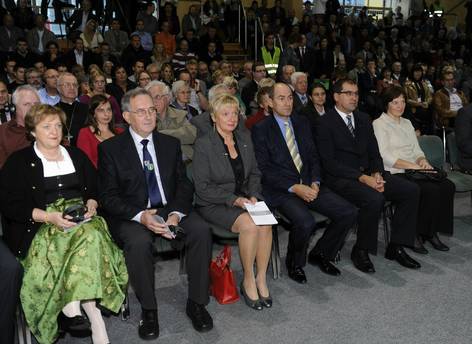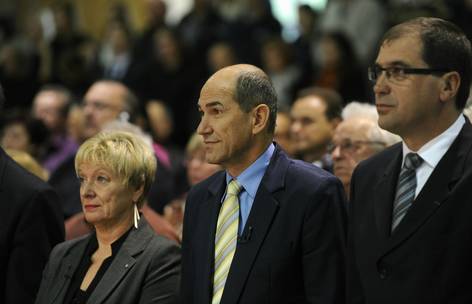NEWS
Prime Minister Janša among the craftspeople and entrepreneurs: ’Small and medium-sized enterprises are the backbone of the Slovenian economy’
The Prime Minister of the Republic of Slovenia, Janez Janša, today, in the fully attended sports hall in Ivančna Gorica, took part in the round table organised within the Days of Slovenian Craft and Small Business; he was accompanied by the President of the Slovenian-German Chamber of Commerce, Gertrud Rantzen, the Mayor of twinned municipality Hirschaid, Andreas Schlund, and the Mayor of Ivančna Gorica, Dušan Strnad. In the discussion, the Slovenian Prime Minister emphasised that all five key measures to overcome the crisis need to be adopted and that this is a national project. He also pointed out that one of the key priorities of the state is to create better conditions for small and medium-sized enterprises which, according to him, are the ones most affected by the crisis even if they are the backbone of the Slovenian economy. The Prime Minister touched upon the importance of rational and efficient drawing of European funds and attracting foreign direct investments which are to enable the creation of new jobs. Prime Minster Janša concluded by saying that we can still exit the crisis on our own, bearing in mind that even if the international help is obtained it will not be a gift and that we can only spend as much as we create.
The Prime Minister underlined how important it is for Slovenia to adopt five key projects by the end of the year and, among them, highlighted the adoption of the proposed budgets for 2013 and 2014, the rehabilitation of the banking system, the regulation of the state-owned asset management system, and the changes needed to improve labour market flexibility and disburden the public pension system. "Overcoming the economic crisis represents a national project. If we wish the project to be successful, we need to view it comprehensively," he stressed, adding that more effective drawing of European funds and the attraction of foreign investments are important financial resources for the future. He recalled the times before the economic crisis when Slovenia was one of financially stable EU member states, but, due to the quick pace of the country’s borrowing in the last three years, a decline in economic activity has still been recorded.
"It is not the saving what the Government does at present but just an attempt to behave more rationally", he said and added that the Government took several hundred measures to alleviate the existing situation. "One of the key priorities of this Government is to improve conditions for small and medium-sized enterprises which are the backbone of the Slovenian economy", he said and pointed out that these enterprises are most affected by the poorly regulated banking system which causes a credit crunch and results in increasing late payments. "In terms of investments, including foreign investments, as well as in terms of taxes and procedures, today Slovenia has the most friendly environment ever", the Prime Minister said, stressing that the rehabilitation of banks is of crucial importance and, without it, all other reforms as a whole will not be sufficient for the Slovenian economy to recover.
In response to the question on the importance of integration to exit the crisis, the Prime Minister said "Difficulties we encounter today have not come out of the blue and are not something that has not been successfully overcome in certain Member States," highlighting the importance of Slovenia's EU membership as an opportunity to learn from examples of good and bad practices. "This Government and administration have a considerable knowledge of these practices," mentioned Prime Minister Janša, emphasising that the integration is a necessity without which we cannot function nowadays. According to the Prime Minister, Slovenia is considered a constructive partner in discussion, who is capable of providing support in resolving the problems of the others. In this context, he spoke about planning a better and more effective use of EU funds. "It is essential that the EU sources and public funds are channelled into effective projects creating new jobs."
Prime Minister Janša noted that "Firstly, the state has to be steered away from dangerous waters to attract foreign investments and new capital for new jobs. We are still in a situation where we are trying to slow down the fall in growth." He highlighted the example of Germany which had difficulties only in 2009 whereas in Slovenia, merely discussions are being held over the question of how to settle debts. "A half of our adjustment was carried out in one step. We did not make adjustments immediately and our public dept has doubled. Now we are working under considerably more difficult circumstances since many credits are used to pay off the interests," mentioned the Prime Minister.
The German partners in discussion, Gertrud Rantzen and Andreas Schlund, the Mayor of Hirschaid, welcomed the measures adopted by the Slovenian Government and expressed their optimistic views of Slovenia's ability to find its way out of difficulties and expressed their wish for a more intensive cooperation. In this context, Dušan Strnad, the Mayor of Ivančna Gorica, supported their opinion and gladly accepted the offer of the Mayor of Hirschaid for a more intensive cooperation in the field of tourism.




